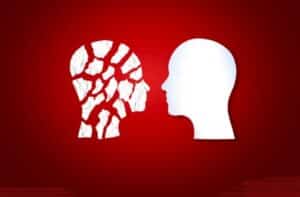Men’s Mental Health
5 Critical Insights Shaping Men’s Mental Health Awareness in 2025

As you navigate the evolving landscape of men’s mental health, understanding the critical insights shaping awareness in 2025 is essential. The dialogue surrounding men’s emotional wellbeing continues to expand, breaking down long-held stigmas and redefining societal expectations. This article explores five key developments that are transforming how men approach, discuss, and prioritize their mental health. By examining these trends, you’ll gain valuable perspective on the changing face of men’s mental health awareness and the implications for individuals and communities alike.
The Growing Importance of Men’s Emotional Well-Being in 2025

Shifting Societal Perceptions
According to Wikipedia, As we approach 2025, society’s understanding of men’s emotional health is undergoing a profound transformation. The outdated notion that men should suppress their feelings is gradually giving way to a more nuanced appreciation of emotional intelligence.
The Role of Technology in Mental Health Support
Advancements in digital health platforms and AI-driven therapies are revolutionizing access to mental health resources for men. These innovations provide discreet, personalized support that aligns with men’s preferences for autonomy and privacy.
Workplace Initiatives and Economic Impact
Forward-thinking companies are recognizing the link between emotional well-being and productivity. These initiatives not only boost employee satisfaction but also contribute to economic stability by reducing absenteeism and improving overall work performance.
Breaking the Stigma Surrounding Men’s Mental Health
Challenging Traditional Masculinity

For decades, societal norms have perpetuated the myth that men should be stoic, unemotional, and self-reliant. This outdated notion of masculinity has created a significant barrier to men seeking help for mental health issues. As we approach 2025, it’s crucial to recognize that strength lies in vulnerability and openness, not in silence and suppression.
Education and Awareness Campaigns
To combat stigma, targeted education initiatives are essential. These campaigns should focus on normalizing conversations about mental health among men, highlighting that seeking help is a sign of courage rather than weakness.
Role Models and Influencers
Influential figures in sports, entertainment, and business play a pivotal role in reshaping perceptions. When public figures share their own mental health journeys, it helps destigmatize the topic and encourages others to seek support. As we move towards 2025, expect to see more male celebrities and leaders stepping forward to champion mental health awareness.
How Therapy Options for Men Are Evolving in 2025

Expanding Access Through Digital Platforms
In 2025, therapy options for men are undergoing a significant transformation. Digital platforms have revolutionized accessibility, offering a range of virtual counseling services tailored to men’s needs. These online platforms provide flexible scheduling and anonymity, addressing common barriers that have historically prevented men from seeking help.
Specialized Approaches for Male-Specific Issues
Therapists are now developing specialized approaches to address male-specific mental health concerns. These methods focus on issues like workplace stress, fatherhood challenges, and societal pressures unique to men. By tailoring treatment to these specific needs, therapists are seeing increased engagement and better outcomes among male patients.
Group Therapy and Peer Support Networks
Group therapy sessions and peer support networks designed exclusively for men are gaining traction. These forums provide safe spaces for men to share experiences and coping strategies with others who understand their struggles. This collective approach is proving particularly effective in breaking down the stigma surrounding men’s mental health.
Integration of Holistic Wellness Practices

Therapy options are increasingly incorporating holistic wellness practices. This integrative approach combines traditional talk therapy with physical activities, mindfulness techniques, and stress-reduction exercises. By addressing mental health as part of overall well-being, these programs are attracting men who might otherwise be hesitant to seek traditional therapy.
Mental Health Awareness Campaigns: Changing the Conversation About Men’s Health

Breaking the Stigma
In recent years, mental health awareness campaigns have made significant strides in changing the conversation about men’s health. These initiatives are breaking down long-standing stigmas and encouraging men to speak openly about their emotional well-being.
Tailored Messaging for Men
Effective campaigns recognize the unique challenges men face in addressing mental health issues. They employ targeted messaging that resonates with masculine identities while challenging harmful stereotypes. These efforts often feature relatable role models, including athletes, celebrities, and everyday men, sharing their personal struggles and recovery journeys.
Leveraging Digital Platforms
Modern mental health awareness campaigns are increasingly utilizing digital platforms to reach wider audiences. Social media campaigns, podcasts, and interactive websites offer accessible information and resources tailored to men’s experiences.
The Rise of Support Networks for Men’s Mental Health in 2025
Digital Peer Support Platforms

In 2025, we’re witnessing a surge in digital platforms specifically designed for men’s mental health support. These online communities provide safe spaces where men can connect anonymously, share experiences, and offer mutual support.
Workplace Wellness Programs
Forward-thinking companies are increasingly implementing comprehensive workplace wellness programs tailored to men’s mental health needs. These initiatives often include stress management workshops, mindfulness training, and confidential counseling services.
Men’s Support Groups
Local communities are seeing a rise in men’s support groups, both in-person and virtual. These groups offer structured environments where men can gather regularly to discuss personal challenges, share coping strategies, and build meaningful connections.
The Role of Social Media in Raising Awareness for Men’s Mental Health

Social media platforms have become powerful tools in the fight to destigmatize men’s mental health issues. As we approach 2025, these digital spaces are playing an increasingly crucial role in spreading awareness, fostering support, and encouraging open dialogue.
Amplifying Voices and Experiences
Social media provides a platform for men to share their mental health journeys, breaking down traditional barriers of silence. Through hashtag campaigns and viral challenges, individuals can reach millions with their stories, normalizing conversations about anxiety, depression, and other mental health concerns.
Creating Supportive Online Communities
Virtual support groups and forums offer safe spaces for men to discuss their struggles without fear of judgment. These communities provide peer support, resources, and a sense of belonging that can be crucial for those dealing with mental health issues.
Facilitating Access to Information and Resources
Social media serves as a conduit for disseminating valuable mental health information. From infographics explaining symptoms to live Q&A sessions with mental health professionals, these platforms make critical knowledge more accessible to men who might otherwise hesitate to seek help.
Overcoming Barriers to Seeking Help: Why More Men Are Reaching Out in 2025

In 2025, we’re witnessing a significant shift in men’s attitudes towards mental health support. This change is driven by several key factors that have collectively reduced the stigma and increased accessibility to resources.
Evolving Societal Norms
Traditional notions of masculinity are being redefined. You’ll notice more public figures and role models openly discussing their mental health journeys, normalizing vulnerability and emotional expression for men. This cultural shift is empowering you to prioritize your mental well-being without fear of judgment.
Technological Advancements
Digital platforms and AI-powered tools have revolutionized mental health support. You now have access to anonymous online counseling, mood-tracking apps, and virtual support groups. These innovations provide discreet, convenient options that align with your comfort level and schedule.
Workplace Initiatives
Companies are increasingly recognizing the importance of mental health. You’re likely to find more employee assistance programs, mental health days, and stress management workshops in your workplace. This corporate focus is destigmatizing help-seeking behaviors and providing readily available resources.
Education and Awareness Campaigns
Targeted mental health literacy programs are equipping you with the knowledge to recognize symptoms and seek appropriate help. Media campaigns are challenging harmful stereotypes, encouraging open dialogue about mental health issues specific to men.

By embracing these changes, you’re part of a growing movement of men taking charge of their mental health, fostering a more supportive and understanding society for future generations.
Men’s Mental Health and Workplace Support: A Growing Focus in 2025

Shifting Corporate Culture
In 2025, workplaces are increasingly recognizing the critical role they play in supporting men’s mental health. Companies are moving beyond traditional Employee Assistance Programs (EAPs) to implement comprehensive mental wellness initiatives. These programs often include on-site counseling services, mental health days, and stress management workshops tailored specifically for male employees.
Breaking the Silence
Progressive organizations are fostering open dialogues about men’s mental health, challenging long-standing stigmas. Leadership teams are stepping up, with male executives sharing their own mental health journeys. This top-down approach is encouraging men at all levels to speak up about their struggles without fear of judgment or career repercussions.
Customized Support Strategies
Recognizing that men often face unique mental health challenges, companies are developing targeted support strategies. These include male-focused support groups, mentorship programs, and training sessions on traditionally “masculine” topics like financial stress and work-life balance. By addressing these specific concerns, workplaces are creating environments where men feel understood and supported in their mental health journey.
Trends in Men’s Wellness: Embracing a Holistic Approach to Men’s Mental Health

Mind-Body Connection
In 2025, men’s mental health awareness is increasingly focusing on the intricate link between physical and mental well-being. You’ll notice a surge in programs that combine traditional therapy with physical activities like yoga, meditation, and outdoor adventures.
Nutrition and Mental Wellness
Another emerging trend is the emphasis on nutrition’s role in men’s mental health. You’re likely to see more men paying attention to “brain foods” and gut health, understanding that what you eat directly impacts your mood and cognitive function.
Tech-Enabled Self-Care
As technology advances, you’ll find an array of digital tools designed specifically for men’s mental health. From AI-powered mood trackers to virtual reality meditation spaces, these innovations are making self-care more accessible and appealing to tech-savvy individuals. These tools not only help in monitoring mental health but also in breaking down barriers to seeking help.
Conclusion
As you reflect on these critical insights shaping men’s mental health awareness in 2025, consider how you can play a role in advancing this important cause. By challenging outdated stereotypes, embracing vulnerability, leveraging technology, fostering community support, and prioritizing holistic well-being, you have the power to create positive change. Remember that mental health is an essential component of overall health for men and boys. Together, we can build a future where men’s mental health is understood, valued, and supported across all facets of society.


